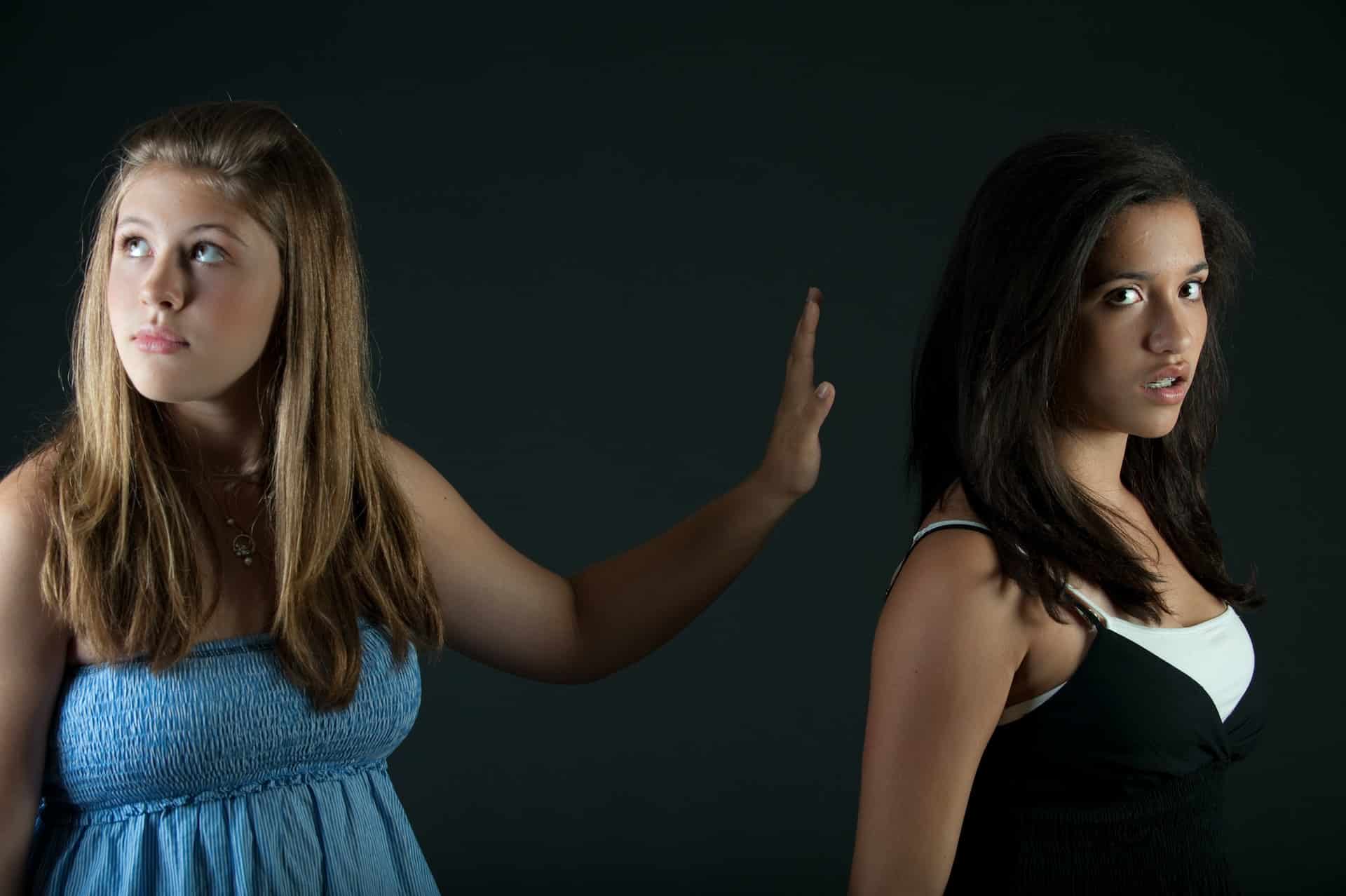








Jealousy Isn't A Negative Emotion
We can experience a plethora of emotions, but there is no such thing as a ‘bad emotion’. This is because all emotions are valid and have a function. Just as guns don’t kill people, emotions don’t in and of themselves create problems. It’s how we respond to them that can make the difference. So let’s talk about two emotions that seem to be increasingly experienced because of the age we live in. Yes, these feelings are arguably more prevalent today because of social media and the broadcasts we see of people living amazingly fabulous lives, which are unattainable because they aren’t real. But seeing them still makes people feel bad.
So What Is It?
Meet fraternal twins Jealousy and Envy. These ‘twin emotions’ are often confused to be the same, but there is a difference. We could look at them as being on a spectrum. Envy is on the milder side, she’s discontented in some way, and desires what others have, but she is not malicious. On the other side of the spectrum lives her twin brother Jealousy, he is a bit more sombre and brooding but not in a good way. For he does not simply covet others’ attributes, possessions, or life status, he feels jealous hate and malice toward the object of his ire.
Some Types of Jealousy
We can all experience jealousy about any number of things and there are many types of jealousy. People experience romantic jealousy, jealousy between families, or in places of work/education because of their own competitiveness. This can result in harm coming to the object of jealousy. But jealousy also negatively impacts the person who experiences it, because in part of the feelings of discontent and misery. Yes, jealousy is called the ‘Green-eyed Monster’ because pathological jealousy can appear frightening and ugly. But there is more damage that comes from being a jealous person.
Celebrity Example
Take Tonya Harding. In 1994 Harding was competing against Kerrigan for Olympic gold in figure skating. But Harding experienced such intense feelings of jealousy that they manifested an unhealthy rivalry. To such a degree that Harding helped orchestrate a violent attack on her perceived rival, who she likely viewed as a threat to her aspirations for Olympic gold. Harding became the green-eyed monster, causing harm to her competition, but also to herself, more on that later…
Client Example
It takes courage to confront feelings like jealousy. I had a brave client, ‘Jane’ who felt jealous toward her friend ‘Sophie’. So much so, she would talk about it in therapy and create narratives of the ill-treatment she experienced at the hands of Sophie. This allowed Jane to tell me about Sophie’s ‘wrongdoings’ and have a valid reason to put Sophie down, something that seemed to be offering her satisfaction – but this satisfaction is surface level, and hollow, and therefore unfulfilling. I suspected this was the case because based on what Jane was saying, it did not seem as though Sophie had done anything wrong.
Things Aren't Always What They Seem
But I respect the experience of my clients, and wished to understand what was going on, so I could be more useful to Jane. So when I dug a bit deeper, I learned that Jane was not upset so much about Sophie’s actions, rather she was upset about how she felt about Sophie’s accomplishments. Sophie was enjoying a thriving career, she was also in a secure relationship. On the other hand, Jane, who was a few years older than Sophie, felt her career was not as glamourous or as high in status, and also felt pressure to settle down because she was approaching her 30s. Add to this the non-committed relationship she was in, and her inexperience of relationships, well, you can see how someone might feel bad about themselves when comparing themselves to a friend they see as younger, more successful, and desired.
The Cost To Relationships & The Self
So this meant every time Jane interacted with Sophie or even thought of her, she felt bad about herself. This allowed Jane to avoid her own feelings of failure by projecting them onto Sophie, and gave Jane a valid reason to hate on Sophie, who had done nothing wrong. This was largely subconscious, but no less unpleasant for Jane, triggering feelings of jealousy, mental anguish, and low self-worth, leading to other uncomfortable feelings. Like painful resentment which meant she often avoided Sophie because this helped her to avoid the unpleasant feelings that were triggered in her, feelings of deficiency, stuckness, and low self-worth.
The Broader Impact
If this dynamic with another, and within oneself goes unchecked, it can generalise to others and keep the jealous person in an ugly, uncomfortable, and painful place, where they feel insecure and experience life with bitterness, cynicism, and loathing. Others can experience them as as unpleasant or miserable, and the jealous person themselves will likely miss out on genuine satisfying connection with others. The more one experiences jealousy, the bigger the resentment grows, taking up space in the day, head, and heart.
Back To Harding
Yes, jealousy is harmful to the one experiencing it. In the case of Harding; she was so focused on her rival, she forgot to focus on her own skating practice. So while her rival was concentrating her energies on herself and improving all the time, Harding was seething and unfocused. It also ruined a time in Harding’s life that should have been joyous and fondly remembered, but is now a blight of shame because Harding was found guilty of involvement. She received three years’ probation, a $160,000 fine, and later lost her 1994 national championships title. She is also banned from the United States Figure Skating Association (USFSA) forever. Yes that’s what jealousy can do when it goes unchecked.
Quantum Leap
Imagine if Harding could have foreseen these consequences, what might she have done instead? She may have spoken to a therapist or coach instead of a potential criminal for a start. And thus focused on improving her own skills as a figure skater, possibly leading her to beat her rival, or come in second. And gone on to compete at other levels, maybe becoming a judge one day, who knows!? But sadly, she took the low road.
What Happened For Jane
In the case of my client Jane, she felt bad about herself, experiencing much pain, and also keeping a distance from a friend who she could have enjoyed a fulfilling relationship with. But because she was in therapy, a place that is safe and validating, we were able to catch these internal conflicts and turmoils, bring them out into the open in a way that was not threatening, and work through the underlying issues so Jane could learn where she might focus her energies, so she too could feel fulfilled, such that the success of others was not a threat to her psyche, rather it could be a motivating inspiration.
So The Moral Of The Story Is...
Mandela said
“Resentment is like drinking poison and then hoping it will kill your enemies.”
If you often feel the discomfort of envy or jealousy and worry about how it might be impacting your relationships, mood and wellbeing, you might decide to reduce or stop using social media as the harsh barometer for judging yourself. But this only skims the surface, tending to a trigger but not the cause, which is carried within all the time. Speaking with a therapist might be the solution.
Take Home
This is the beginning of the process of change, because with the guidance of a trained professional, you can explore and become aware of your hidden feelings, understand what they are really about (because often jealousy is more to do with our own ‘stuff’ rather than the person who we perceive as the cause), but in a way that feels safe. And you take this a step further by learning what needs to change for you, being facilitated by your therapist to make the changes you need so you can feel fulfilled in yourself. Only when you remove the distraction that is the target of your jealousy (in our examples, Sophie or Kerrigan), will jealousy no longer fuel the discontent that it needs to thrive, and keep you stuck as it eats away at your quality of life.
- Why Is Suicide So Prevalent In KPOP? RIP Moon Bin
- PTSD: Case Study of Thomas Shelby
- Paedophilic Obsessive-Compulsive Disorder (POCD) I
- The Value Of Confronting Self-Doubt As A Psychotherapist
- What Happens When Trauma Is Ignored, Vs When It's Not
- A Warm Welcome From Phinity Therapy
- Rehanna Talks Issues
- Rehanna Discusses Phinity Services
- The HEALTHIER WAY To Grieve
- What Your THERAPIST'S TITLE REALLY MEANS!


